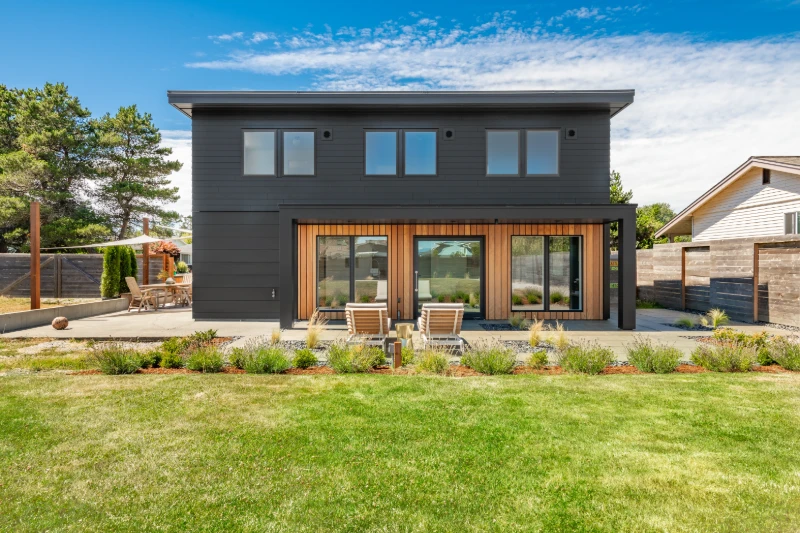What to Look for When Touring a House
Are you ready to find the perfect home in Colorado Springs or anywhere in Colorado? Touring a house is an exciting step, yet it can also feel overwhelming. An open house is a public event hosted by the listing agent, allowing potential buyers to casually tour the home for sale. In this guide, we’ll break down exactly what to look for when visiting a property—drawing on insights from industry experts to ensure nothing slips through the cracks. From structural concerns and potential maintenance issues to neighborhood considerations and property inspection, you’ll learn the essential steps for a successful tour. By the end, you’ll feel confident and prepared to make the best decision for your future home purchase.

Preparing for a Home Tour
Before embarking on a home tour, it’s essential to prepare yourself to make the most out of the experience. Here are some steps to help you prepare:
Research the Neighborhood
Researching the neighborhood is crucial in determining whether the area is suitable for your needs. Look into the local schools, crime rate, public transportation, shopping centers, and community amenities. You can also drive around the neighborhood to get a feel of the area and talk to locals to gain insight into the community. This groundwork will help you understand if the neighborhood aligns with your lifestyle and long-term plans.
Define Your Priorities
Make a list of your priorities when it comes to your dream home. Consider factors such as the number of bedrooms and bathrooms, square footage, floor plan, storage space, and outdoor space. Having a clear idea of what you’re looking for will help you focus on the essential features during the home tour. This way, you can quickly identify homes that meet your criteria and avoid those that don’t.
Review the Listing and Floor Plan
Review the listing and floor plan of the property to get an idea of the layout and features of the home. Assessing the wall and floor condition during a property inspection is crucial, as it helps identify signs of significant damage such as warped floors and cracks. Take note of the room sizes, closet space, and any unique features such as a backyard or pool. This will help you visualize the space and identify any potential issues during the home tour. By familiarizing yourself with the floor plan, you can better assess whether the home’s layout suits your needs and preferences.
Scheduling a Home Tour
Scheduling a home tour can be done in various ways, depending on your preferences and needs. Here are some options to consider:
Working with a Real Estate Agent
Working with a real estate agent can be beneficial in scheduling a home tour. They can provide you with valuable information about the property, neighborhood, and local market trends. They can also help you navigate the homebuying process and provide guidance on what to look for during the home tour. Additionally, they can often provide access to properties that are not publicly listed, giving you a wider range of options to choose from.
When working with a real estate agent, be sure to communicate your priorities and needs clearly. They can help you find properties that match your criteria and schedule home tours accordingly. A knowledgeable real estate agent can make the homebuying process smoother and more efficient, ensuring you don’t miss out on your ideal home.
Scheduling the Tour
Scheduling a home tour is an exciting step in the homebuying process. To make the most of your time, it’s essential to plan ahead and be flexible. Here are some tips to consider:
- Be Flexible: Be open to touring homes at different times of the day and week. This will give you a better sense of the neighborhood and the home’s natural light. Seeing a property in various lighting conditions can help you understand how it feels throughout the day.
- Plan Ahead: Schedule tours in advance to ensure that the homes you want to see are available. This is especially important during peak homebuying seasons when properties can move quickly.
- Bring a List: Make a list of the homes you want to tour and prioritize them based on your needs and preferences. This will help you stay organized and focused during your tours.
- Consider a Pre-Listing Home Inspection: If possible, consider hiring a home inspector to evaluate the property before you make an offer. This can help you identify potential issues and avoid costly repairs down the line. A pre-listing home inspection can provide peace of mind and give you leverage in negotiations.
Prioritize the Home’s Structure
Before you fall in love with the decor or a fresh paint job, remember: structure comes first. A house may look beautiful on the surface, but any major structural problems can be costly to fix. Here’s what to check:
- Foundation: Look for visible cracks or signs of water damage in the basement or crawl space.
- Roof Condition: A new roof can cost thousands of dollars. Ask about its age and examine for visible wear or missing shingles.
- Walls and Floors: Uneven floors or large cracks in the walls could signal bigger issues like settling or foundational shifts. Assess the wall and floor condition as warped floors and cracks can indicate serious structural issues. Neglecting these signs can lead to costly repairs.
- Windows and Doors: Check that they open and close smoothly. Faulty seals can lead to drafts and higher utility bills.
Pro Tip: Bring a small flashlight to examine dark corners, attics, or crawl spaces for moisture or pest concerns. According to experienced real estate professionals, these hidden spots often reveal a home’s true condition.
Examine Potential Maintenance Issues Including Electrical and Plumbing Systems
Beyond the structure, keep an eye on the overall condition of the home’s main systems. Experts suggest testing everyday functions—like turning on faucets—to catch potential problems early:
- Plumbing and Water Pressure
- Turn on faucets, showers, and even flush toilets to test water flow and drainage.
- Look for signs of leaks under sinks, around toilets, or in basement areas.
- Electrical and Lighting
- Flip all light switches to see if they work properly.
- Test multiple outlets with a phone charger or small device.
- Check the electrical panel to confirm updated wiring or clear labeling. Assess the home’s age to identify potential safety issues, ensuring that the electrical and plumbing systems meet current codes.
- HVAC Systems
- Ask about the age and maintenance history of the heating and cooling systems. Understanding the type of system in place is crucial.
- Listen for any unusual noises coming from vents or fans.
- Inspect both heating and cooling systems to understand potential repair costs and energy efficiency.
- Major Appliances
- If appliances like a refrigerator or washer/dryer are included, inspect their condition and age.
- Note whether they’re energy-efficient, as upgrades can cut down on future utility costs.
Remember: If you spot something concerning, it doesn’t necessarily mean you should walk away. However, you’ll want to factor potential repair or replacement costs into your budget—or consider negotiating these expenses with the seller.
Exterior Evaluation
When evaluating the exterior of a home, there are several key factors to consider. A thorough inspection of the outside can reveal a lot about the property’s overall condition:
- Roof Condition: Check for damaged, missing, or loose shingles. Look for signs of wear around chimneys, vents, and skylights. A well-maintained roof is crucial for protecting the home from weather-related damage.
- Siding: Inspect the siding for cracks, damage, or signs of wear. Check for any gaps or openings that could allow water to enter the home. Properly maintained siding helps prevent moisture problems and improves energy efficiency.
- Gutters and Downspouts: Ensure they are securely attached and functioning properly. Effective drainage systems prevent water damage to the foundation and landscaping.
- Landscaping: Consider the condition of the lawn, trees, and other landscaping features. Are they well-maintained, or are they overgrown and neglected? Healthy landscaping can enhance curb appeal and indicate overall property care.
- Outdoor Structures: Evaluate the condition of any outdoor structures, such as decks, patios, or fences. Check for signs of rot, rust, or other damage that may require repairs.
Interior Evaluation
When evaluating the interior of a home, there are several key factors to consider. First, take note of the overall condition of the walls, floors, and ceilings. Look for any signs of damage, wear, or needed repairs. Cracks in the walls or ceilings and uneven floors can be indicators of underlying issues. Also, pay attention to the lighting in each room, and consider the natural light that enters through the windows. Natural light can significantly impact the ambiance and energy efficiency of a home.
Next, evaluate the layout and functionality of each room. Consider the flow of traffic and how the rooms are connected. Think about how you will use each room and whether the layout will work for your needs. For instance, an open floor plan might be ideal for entertaining, while separate rooms might offer more privacy. Also, take note of the storage space in each room, including closets, cabinets, and shelves. Adequate storage space is essential for maintaining an organized and clutter-free home.
Finally, consider the overall aesthetic of the interior. Think about the style and design of the home, and whether it fits with your personal taste. Take note of any unique features, such as built-in shelves or custom molding, which can add character and value to the home. By thoroughly evaluating the interior, you can ensure that the home meets your functional and aesthetic needs.
Systems and Components
When evaluating a home, it’s essential to consider the systems and components that make it functional. This includes the heating and cooling systems, electrical and plumbing systems, and appliances.
Start by evaluating the heating and cooling systems. Check the age and condition of the systems, and consider whether they are energy-efficient. Ask about the maintenance history and look for any signs of wear or needed repairs. Efficient heating and cooling systems can save you money on energy bills and reduce the need for costly repairs.
Next, evaluate the electrical and plumbing systems. Check for any signs of damage or needed repairs, and consider whether the systems are up-to-date. Look at the electrical panel to ensure it’s properly labeled and up to code. Test outlets and switches to make sure they’re functioning correctly. For plumbing, check for leaks, water pressure, and the condition of pipes. Updated electrical and plumbing systems can prevent future issues and ensure the home’s safety.
Finally, consider the condition of the appliances, including their age and functionality. Energy-efficient appliances can reduce utility costs and are often a sign of a well-maintained home. By thoroughly evaluating these systems and components, you can get a better understanding of the home’s overall condition and potential future maintenance needs.
Observe Home Layout and Design
While structural soundness is vital, don’t forget about everyday livability. According to industry insights, a home’s layout can influence long-term satisfaction:
- Flow Between Rooms: Does the main level feel open and practical for your needs? Are living areas separated in a way that suits your lifestyle? For instance, an open floor plan might be ideal for entertaining, while separate rooms might offer more privacy.
- Storage Space: Check closets, pantries, and attic or basement storage. Sufficient room for personal items can eliminate clutter and maintain order.
- Natural Light: Take note of window placements and whether rooms feel bright enough during the day.
Here’s what you need to know next: Make sure the home’s design matches your family’s habits. A house that looks good on paper may not be functional in day-to-day life if the layout is awkward or lacking key features.
Assess the Neighborhood and Surrounding Area
When touring a house, don’t forget that your surroundings matter as much as the property itself. If you’re considering Colorado Springs real estate, keep these points in mind:
- Noise Levels: Are you near busy roads, train tracks, or commercial areas? Visit at different times—both weekdays and weekends—to see how noise and traffic may change.
- Proximity to Amenities: Notice how close you are to schools, grocery stores, parks, and healthcare facilities.
- Local Regulations: In some parts of Colorado—especially near mountain communities like Monument or Castle Rock—local guidelines may affect landscaping, building additions, or paint colors.
- Potential for Growth: Consider whether the area is up-and-coming, stable, or in decline. Local real estate data can provide insight into property value trends.
- Community Atmosphere: If possible, talk to neighbors. Their insights can help you gauge the neighborhood’s culture and safety.
Asking the Right Questions
When touring a home, asking the right questions can provide valuable insights into the property’s condition and potential future costs. Here are some key questions to consider:
- What is the Square Footage of the Home?: Understanding the size of the home helps you compare it to your needs and other properties.
- How Many Bedrooms and Bathrooms Are There?: Ensure the home meets your requirements for living space and convenience.
- What is the Condition of the Electrical and Plumbing Systems?: Ask about the age and maintenance history of these systems. Updated electrical and plumbing systems can prevent future issues and costly repairs.
- Are There Any Known Issues with the Home?: Inquire about any foundation problems, termite damage, or other significant concerns. Knowing about these issues upfront can help you make an informed decision.
- Are There Any Upcoming Assessments or Fees Associated with the Home?: Understanding any additional costs can help you budget more accurately.
- Is the Home Located in a Flood Zone or Prone to Natural Disasters?: Knowing the risk of natural disasters can influence your decision and insurance needs.
Questions to Ask During the House Tour
When touring a home, it’s essential to ask questions to get a better understanding of the property. Here are some questions to consider:
- What is the age and condition of the heating and cooling systems?
- Are the electrical and plumbing systems up-to-date?
- What is the condition of the appliances?
- Are there any signs of damage or needed repairs?
- How is the natural light in each room?
- What is the overall condition of the walls, floors, and ceilings?
- Are there any unique features or custom design elements?
Asking these questions can help you gather important information about the home’s condition and potential future costs. It also shows the seller and real estate agent that you are a serious and informed buyer.
Red Flags to Watch For
When touring a home, being aware of potential red flags can save you from future headaches. Here are some key things to watch for:
- Water Damage: Look for signs of water damage, such as stains, warping, or mineral deposits. Water damage can indicate leaks or poor drainage, leading to costly repairs.
- Structural Issues: Check for any signs of structural damage, such as cracks in the walls or floors. Structural problems can be expensive to fix and may affect the home’s safety.
- Pest Infestation: Look for signs of pest infestation, such as droppings, nests, or actual pests. Pests can cause significant damage and health concerns.
- Mold and Mildew: Check for any signs of mold and mildew, such as musty odors or visible growth. Mold can affect indoor air quality and indicate moisture problems.
- Broken Sewer Line: Check for any signs of a broken sewer line, such as sewage backups or slow drains. A broken sewer line can lead to unpleasant odors and costly repairs.
By being aware of these potential issues, you can make a more informed decision when buying a home. Remember to always work with a reputable real estate agent and consider hiring a home inspector to evaluate the property before making an offer.
Structural Issues
When evaluating a home, it’s essential to consider any potential structural issues. This includes the foundation, walls, and roof.
Start by evaluating the foundation. Check for any signs of damage or needed repairs, and consider whether the foundation is stable. Look for cracks, water damage, or uneven settling, which could indicate serious issues. A stable foundation is crucial for the overall integrity of the home.
Next, evaluate the walls and roof. Check for any signs of damage or needed repairs, and consider whether the walls and roof are stable. Look for cracks, water stains, or signs of wear that could indicate underlying problems. A well-maintained roof protects the home from weather-related damage and can prevent costly repairs.
Finally, consider the overall condition of the home’s structure. Think about whether there are any potential issues that could affect the home’s stability or safety. Addressing structural issues early can prevent more significant problems down the line and ensure the home’s longevity.
Needed Repairs
When evaluating a home, it’s essential to consider any needed repairs. This includes repairs to the systems and components, as well as any structural issues.
Start by evaluating the systems and components. Check for any signs of damage or needed repairs, and consider whether the systems and components are well-maintained. Look for signs of wear or needed maintenance in the heating and cooling systems, electrical and plumbing systems, and appliances. Identifying these issues early can help you budget for repairs and avoid unexpected costs.
Next, evaluate any structural issues. Check for any signs of damage or needed repairs, and consider whether the foundation, walls, and roof are stable. Look for water damage, leaks, or cracks that could indicate more significant problems. Addressing these issues promptly can prevent further damage and ensure the home’s safety.
Finally, consider the overall condition of the home and whether there are any needed repairs. Think about whether the repairs are minor or major, and whether they will affect the home’s value or safety. By considering these factors, you can get a better understanding of the home and whether it’s the right fit for you.
Don’t Forget Your Mortgage Preparation
While touring houses is a thrill, being financially prepared is just as important. That’s where 719 Lending comes in. Our team in Colorado Springs specializes in helping both first-time homebuyers and current homeowners navigate mortgage options. Whether you’re eyeing a modern home in Castle Rock or a peaceful property in Pueblo, having your financing in order makes your offer more attractive to sellers.
- Get Pre-Approved: A pre-approval from 719 Lending shows sellers you’re serious and financially ready.
- Explore Loan Programs: Conventional, FHA, VA, or USDA—our local mortgage professionals (NMLS#1601989) will guide you to the best fit.
- Ask Questions: Whether you need clarity on down payments, interest rates, or closing costs, we have the answers.
Pro Tips for a Successful House Tour
To make the most of each tour, follow these additional best practices drawn from top real estate guides:
- Take Notes & Photos
- After seeing multiple homes, details can blur together. Keep a checklist or snap photos to remember key features.
- Visit at Different Times
- If possible, drop by on a weekday and a weekend to see varying traffic patterns and noise levels.
- Use All Your Senses
- Unusual smells, squeaky floors, or water stains might indicate hidden issues like mold, pests, or prior leaks.
- Check for signs of a broken sewer line, such as unpleasant odors and wet spots in the yard.
- Ask the Right Questions
- Inquire about average utility costs, age of major appliances, and any ongoing or planned construction in the area.
- Attend open houses for a relaxed viewing experience without the pressure of a private showing.
- Look at Exterior Details
- Inspect the gutters, siding, and yard drainage. Proper upkeep of these elements often indicates a well-maintained property overall.
Ready to Take the Next Step?
If you’re touring homes in Colorado Springs or anywhere in Colorado, let 719 Lending be your trusted mortgage partner. We have the local expertise to guide you through the process from start to finish.
Check out our Home Loan Options to see how we can help you secure the financing you need. Or, if you prefer a one-on-one conversation, contact us to speak with a loan officer today!
FAQ
1. What should I do if I find issues during a house tour?It depends on the severity. Small issues can often be negotiated in the closing price or handled through seller concessions. Major issues might require walking away or requesting repairs before finalizing your purchase.
2. Why is getting pre-approved important?Pre-approval shows sellers you’re financially prepared. This can give you an edge in competitive markets like Colorado Springs real estate, where buyers who can move quickly often secure the best properties.
3. How do I know if the neighborhood is a good fit?Spend time exploring the area and talk to neighbors. Check commute times, local amenities, and neighborhood safety reports. First-hand experience will help you decide if it suits your lifestyle and long-term plans.
4. What should I consider when I tour a house?When you tour a house, preparation is key. Bring a checklist of questions to ask, such as the age of the roof and the condition of the plumbing. Look out for red flags like water damage or structural issues. Ensure you have essential items like a flashlight and a camera to document any concerns. This thorough evaluation will help you make an informed decision.
Final Thoughts
Touring a home is an exciting milestone in your search for the perfect property. By evaluating the home’s structure, keeping an eye out for maintenance issues, and considering the neighborhood carefully, you’ll make a more confident decision. Most importantly, partnering with 719 Lending in Colorado Springs ensures you’ll have expert guidance on mortgages and financial planning—every step of the way.
This blog post is for informational purposes only and does not constitute financial advice. Please consult a licensed mortgage professional for individualized guidance. NMLS#1601989. Equal Housing Lender.
The post What to Look for When Touring a House appeared first on 719 Lending.
Categories
Recent Posts











